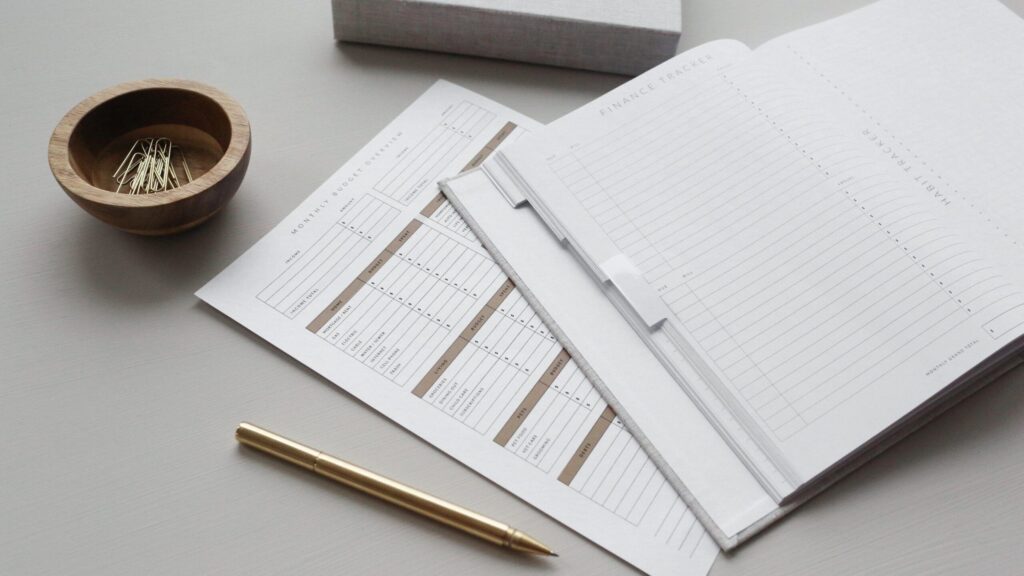Facing debt can feel overwhelming, and it’s tempting to consider all available financial resources – including your RRSP – as a way out. Before using your retirement savings to alleviate immediate financial strain, however, it’s crucial to carefully assess the trade-off between short-term relief and long-term financial security. So, is using RRSP to pay off debt a good idea?
In this article, we’ll guide you through the situations where cashing out your RRSP could be a smart move – and when it might put your future at risk
What is an RRSP?
A Registered Retirement Savings Plan (RRSP) is a tax-deferred account that allows Canadians to save for retirement. Contributions are tax-deductible, and your investments grow tax-free until you withdraw them – ideally in retirement, when your income (and tax rate) is lower.
If you withdraw early, however, there are tax penalties, and you permanently lose that contribution room.
The temptation: using RRSPs to pay off debt
It’s easy to see the appeal. If you have high-interest debt – like credit cards charging 19.99% or more – using your RRSP might feel like the fastest way out. According to TransUnion, the average credit card balance for Canadians in the third quarter of 2024 was $4,562, and with rates that high, that can feel impossible to clear.
But here’s the catch: RRSP withdrawals are considered taxable income, and the immediate tax withholding can be steep:
| Amount Withdrawn | Tax Withheld (outside Quebec) |
|---|---|
| Up to $5,000 | 10% |
| $5,001–$15,000 | 20% |
| Over $15,000 | 30% |
Source: Government of Canada – RRSP Withdrawals
So, if you take out $20,000 from your RRSP in Ontario, you’ll only receive $14,000 – and you may owe even more when you file your taxes, depending on your income.
The long-term cost of cashing out
What you withdraw today could cost you thousands in the future. Let’s look at an example:
If you withdraw $15,000 at age 35, and your investments would have earned an average 5% annual return, you’d be missing out on nearly $65,000 in retirement income by age 65.
“Tapping into your RRSP early should be a last resort,” says Gillian Goldblatt, Partner and Licensed Insolvency Trustee at Spergel. “You’re not just losing money today – you’re putting your retirement at risk. And for many Canadians, that gap is hard to rebuild.”
When using your RRSP to pay off debt might make sense
There are a few rare situations where withdrawing from your RRSP could be a reasonable option for paying off your debt:
- You’ve exhausted all other options and are facing aggressive collections or legal action.
- You’re close to retirement, with little time for the funds to grow.
- You only need a small withdrawal to avoid missing a mortgage or utility payment.
- You’re eligible for the Home Buyers’ Plan (HBP) or Lifelong Learning Plan (LLP), which allow tax-free withdrawals if repaid on schedule.
But even then, it’s worth speaking with a Licensed Insolvency Trustee first to review your alternatives.
What are the alternatives to using RRSP to pay off debt?
Instead of draining your RRSP, consider the following options:
- Debt consolidation loan: combine multiple debts into a single lower-interest payment.
- File a consumer proposal: a legally binding agreement to reduce your debt by up to 80% and avoid bankruptcy – while protecting your RRSP.
- Credit counselling: work with a certified counsellor to create a debt management plan, although do note that you’ll need to repay the full amount of your debt.
- Budget adjustments: a financial review might uncover new ways to free up cash.
“One of the biggest misconceptions is that you have to lose everything to deal with debt,” says Gillian. “In a consumer proposal, for example, your RRSP is fully protected. That’s the law.”
Using RRSP to pay off debt: FAQs
Here are some of the most common questions we receive about using RRSP to pay off debt:
Should you use your RRSP to pay off debt?
In most cases, you should not use your RRSP to pay off debt. Withdrawing funds early triggers immediate tax penalties, reduces your future retirement savings, and can’t be re-contributed later. While it may feel like a quick fix, it often creates longer-term financial setbacks. Instead, speak with a Licensed Insolvency Trustee to explore alternatives like a consumer proposal – which protects your RRSP while reducing your debt.
What happens if you withdraw $20,000 from your RRSP?
If you withdraw $20,000 from your RRSP, your financial institution will withhold 30% in taxes, meaning you’ll receive only $14,000 upfront. That $20,000 is also considered taxable income, so you may owe additional tax when you file your return, depending on your total income for the year. Plus, you’ll lose that contribution room permanently, and miss out on the future growth that money could have earned for your retirement.
Can I use RRSP to pay off a mortgage?
Technically, yes — you can withdraw money from your RRSP to pay off your mortgage, but it’s usually not a wise financial move. Withdrawals are taxable, reduce your retirement savings, and can’t be re-contributed, unlike the Home Buyers’ Plan (HBP), which is only for first-time home purchases. If you’re considering this option due to financial strain, it’s better to speak with a Licensed Insolvency Trustee to explore strategies that protect both your home and your future retirement.
What is the disadvantage of a RRSP?
The main disadvantage of an RRSP is that withdrawals are taxed as income, which can lead to a hefty tax bill if you take money out before retirement. You also lose the contribution room permanently when you withdraw, and any early withdrawals reduce the power of compound growth over time. Plus, if your income in retirement is higher than expected, you could end up paying more tax on withdrawals than you saved when contributing.
Protecting your future
Your RRSP was designed to give you peace of mind later in life – not to be a piggy bank in times of crisis. That’s why it’s crucial to seek personalized, non-judgmental advice before making a decision that could derail your future. At Spergel, our team of experienced Licensed Insolvency Trustees can help you understand your options and protect what matters most. Licensed Insolvency Trustees are the only professionals in Canada legally able to file all forms of debt relief, so they are a good first port of call.
Let’s talk
Thinking about using your RRSP to pay off debt? Let’s explore a better way forward – together. Book your free, no-obligation consultation today. There’s always a solution – because debt shouldn’t define you.
What to read next
- Debunking common bankruptcy myths: the truth about debt relief in Canada
- Tax refund and debt: should you use your tax refund to pay off debt?
- Warning signs of bankruptcy: how to recognize red flags and take action
- Tax season 2025: what you need to know
- The top 5 financial mistakes to avoid making this year



















